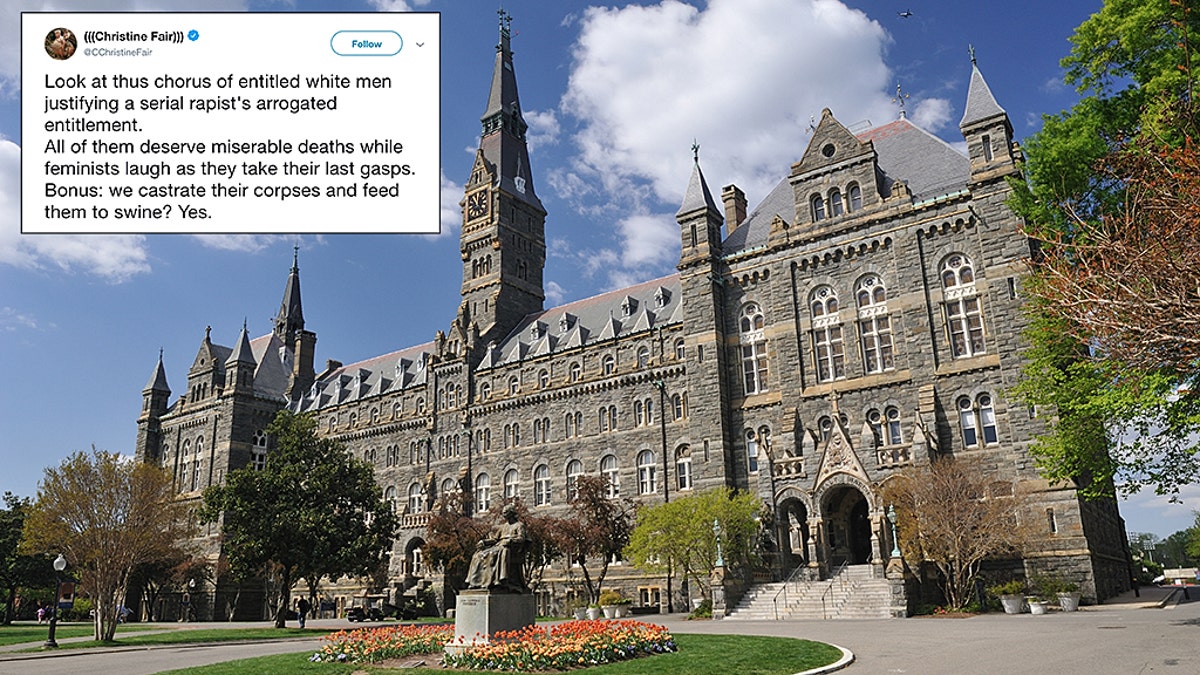
An associate professor at Georgetown University tweeted that white GOP Senators "deserve miserable deaths" after the Brett Kavanaugh hearing.
An anti-Trump professor at Georgetown University is taking heat for a tweet saying white Republican senators who were at Supreme Court nominee Brett Kavanaugh's hearing Friday should be castrated and endure a miserable death.
Dr. Carol Christine Fair, an associate professor in the Security Studies Program at Georgetown, said white Republican senators, specifically Sen. Lindsey Graham, R-SC, who defended Kavanaugh in a fiery speech, “deserve miserable deaths." Fair went on to say in her Saturday message that the living should “castrate their corpses and feed them to swine."
“Look at [this] chorus of entitled white men justifying a serial rapist’s arrogated entitlement,” she wrote. “All of them deserve miserable deaths while feminists laugh as they take their last gasps. Bonus: we castrate their corpses and feed them to swine? Yes.”
The week before, Fair went on a profanity-laced Twitter tirade against Kavanaugh, calling the embattled nominee a “rapist” and “perjurer.” She described the GOP as a “f---ing death cult” and “filthy swine.”
One Georgetown student pointed out the oldest Catholic university in America would not recruit students with this kind of behavior in their online portfolio, and it makes no sense coming from a distinguished professor, either.
YALE LAW SCHOOL PROFESSORS CANCEL CLASS AS STUDENTS PROTEST KAVANAUGH NOMINATION
“I don’t think people that Georgetown actually employs should be held to a significantly lower standard,” one student told Campus Reform, “And clearly, any of her students that see this rant are going to feel threatened if they have opinions that differ from hers.”
Fair told Fox News the tweets are part of her “private speech” and referred to a blog post she wrote on her personal site in which she wrote she chose her words specifically, and they were “intended to make you uncomfortable.”
ANTI-TRUMP GEORGETOWN PROFESSOR GOES ON PROFANE TIRADE AGAINST KAVANAUGH, GOP
A Georgetown University spokesperson told Fox News the views of faculty members expressed in their private capacities are their own and not the views of the university.
"Our policy does not prohibit speech based on the person presenting ideas or the content of those ideas, even when those ideas may be difficult, controversial or objectionable,” the statement said. “While faculty members may exercise freedom of speech, we expect that their classrooms and interaction with students be free of bias and geared toward thoughtful, respectful dialogue."





















